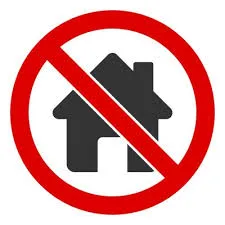Canadian govt effort to make housing affordable for Canadians extends two-year ban on foreign ownership
SJ Singh/ Diaspora Correspondent / February 5,2024
Chrystia Freeland, Deputy Prime Minister and Minister of Finance, announced the federal government’s intent to extend by an additional two years the existing ban on foreign ownership of Canadian housing.
For years, foreign money has been coming into Canada to buy up residential real estate, increasing housing affordability concerns in cities across the country, and particularly in major urban centres. Foreign ownership has also fueled worries about Canadians being priced out of housing markets in cities and towns across the country.
As part of using all possible tools to make housing more affordable for Canadians, the ban on foreign ownership of Canadian housing, which is currently set to expire on January 1, 2025, will be extended to January 1, 2027. Foreign commercial enterprises and people who are not Canadian citizens or permanent residents will continue to be prohibited from purchasing residential property in Canada.
The ban on foreign ownership of Canadian housing—and this two-year extension—is just one part of the federal government’s economic plan to make housing more affordable for Canadians. The federal government is taking bold action and working with all orders of government to build more homes, faster, and put homeownership back within reach for more Canadians.
Canadian govt effort to make housing affordable for Canadians extends two-year ban on foreign ownership . Quotes
“By extending the foreign buyer ban, we will ensure houses are used as homes for Canadian families to live in and do not become a speculative financial asset class. The government is intent on using all possible tools to make housing more affordable for Canadians across the country.”
– Chrystia Freeland, Deputy Prime Minister and Minister of Finance

Quick facts
- Since 2015, the average annual federal housing investment has more than doubled. In 2023-24, federal investment in housing is $9 billion higher than it was in 2013-14.
- In 2022, the federal government passed the Prohibition on the Purchase of Residential Property by Non-Canadians Act to ban foreign investors from buying residential property in Canada and to ensure the housing market remains available to Canadians.
- Canada’s economic plan, including recent investments in the 2023 Fall Economic Statement, is building more homes, faster, and making housing more affordable for Canadians. This plan includes:
- The Affordable Housing and Groceries Act, which removed the Goods and Services Tax (GST) on new rental housing;
- Over $40 billion through the Apartment Construction Loan Program, which is providing low-cost financing to support more than 101,000 new rental homes across Canada by 2031-32;
- Over $14 billion through the Affordable Housing Fund to build 60,000 new affordable homes and repair 240,000 homes;
- The $4 billion Housing Accelerator Fund, which is incentivizing municipalities to make transformative changes by removing zoning barriers and ramping up housing construction. The Housing Accelerator Fund is already fast-tracking the construction of at least 100,000 homes over the next three years, and more than 500,000 homes across Canada over the next decade;
- $4 billion through the Rapid Housing Initiative, which is expected to help build more than 15,500 affordable homes for people experiencing homelessness or in severe housing need;
- Over $200 million through the Federal Lands Initiative to build 4,500 new homes by repurposing surplus federal lands and buildings to housing providers at low or no cost;
- Unlocking $20 billion in new financing to build 30,000 more rental apartments per year by increasing the annual limit for Canada Mortgage Bonds from $40 billion to up to $60 billion;
- The Canadian Mortgage Charter, which details the tailored mortgage relief that the government expects banks to provide borrowers who are facing financial difficulty with the mortgage on their principal residence;
- The new Tax-Free First Home Savings Account, which is a registered savings account that allows Canadians to contribute up to $8,000 per year (up to a lifetime limit of $40,000) for their first down payment; and,
- Allocating nearly $4 billion towards the government’s goal of ending chronic homelessness, through Reaching Home, Canada’s Homelessness Strategy.












